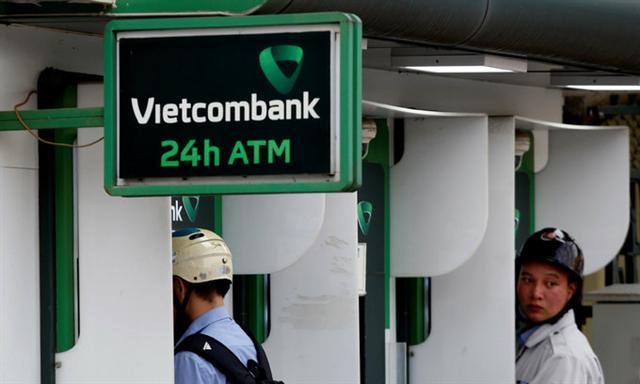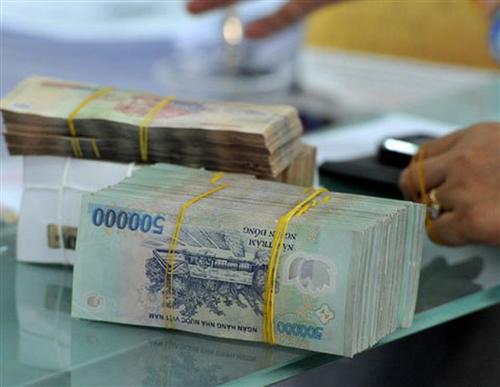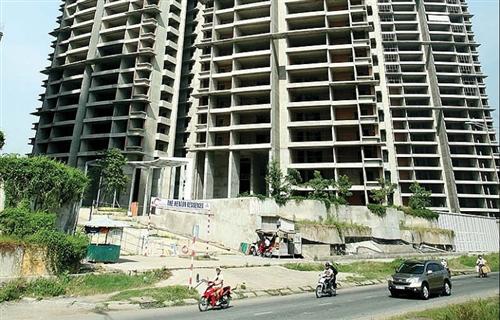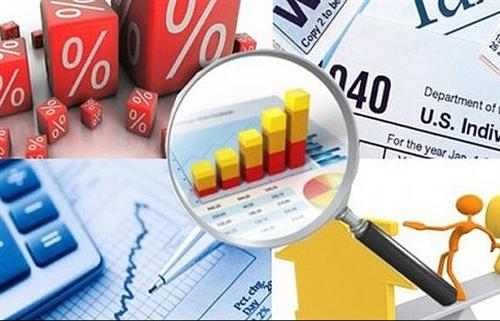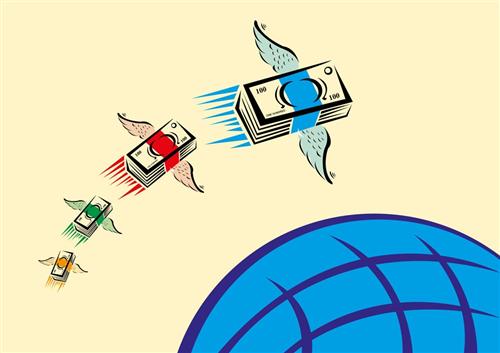Overdue debt surges at Vietnam banks
Overdue debt surges at Vietnam banks
Commercial banks’ Q1 statements show a spike in debts overdue by 10-90 days as coronavirus impacts squeeze businesses’ cash flow.
Men withdraw money from a ATM at a branch of Vietcombank in Hanoi. Photo by Reuters/Kham.
|
At Vietcombank, the country’s biggest state-owned lender by market capitalization, the debt almost doubled from the beginning of the year, while it rose 65 percent at the Military Commercial Bank (MB), a mid-sized state-owned lender.
Some smaller private banks also reported higher increases in overdue debt. For instance, PGBank reported that its overdue debt more than tripled over the last three months, while Sacombank, a blue chip on the Ho Chi Minh Stock Exchange, said overdue debts rose 80 percent in this period.
Debt overdue by between 10 and 90 days, formally known as "debt requiring attention", are not classified as non-performing loans on banks books, but prevents them from recording accrued interest as income until it is paid, causing profits to fall.
The sudden surge in overdue debt also indicates many borrowers are unable to pay on time as a result of the Covid-19 pandemic, and these loans are one step closer to becoming bad debt, banks said.
Bad and doubtful debt has also risen at many banks, according the financial statements of major lenders like Vietcombank, VietinBank and ACB to small-sized banks like PGBank and Kienlongbank, according to financial statements.
Vietinbank, a major state-owned lender, saw its doubtful debt soar five-fold in the first three months from VND2.06 trillion ($87.76 million) to VND9.7 trillion ($413.23 million), which raised its internal non-performing-loan (NPL) ratio from 1.16 percent to 1.83 percent.
At the Military Commercial Bank, doubtful debt rose 90 percent, with bad debts rising 47 percent since the end of last year, bringing the state-owned bank’s internal NPL ratio from 1.16 percent to 1.62 percent. These two lenders saw the biggest NPL increases in the banking sector.
Although Vietcombank and ACB have NPL ratios below the industry average, they also reported rising bad and doubtful debt over the same period.
Rising NPL ratios force banks to set aside more cash as credit risk reserves, affecting their bottom line. In the first quarter, the Military Commercial Bank’s provision for credit risk surged nearly 120 percent, that of private TPBank rose 110 percent, and Vietcombank, nearly 40 percent.
Under current regulations, banks are allowed to retain the classification of debts and restructure those deemed affected by Covid-19.
According to a credit risk manager with a state-owned bank that did not wish to be named, restructuring or extending loans could save businesses in temporary difficulties for one or two terms.
"But for businesses with poor resilience and adaptability, debt extensions only serve to delay their deaths, as the market has basically changed compared to before the epidemic," he added.
The State Bank of Vietnam's latest report said Covid-19 is expected to affect the quality of VND2 quadrillion ($85.2 billion) worth of debt issued by Vietnamese banks, accounting for 23 percent of the banking system’s outstanding debt.
This, along with rising bad debts across the whole banking sector by the end of this year, would put a strain on the performance of the sector and make it harder for weaker banks to recover, the central bank said.
Last year, the banking sector’s internal NPL ratio, which excludes debts sold to state-owned debt collecting agency VAMC, was 1.89 percent, in line with the SBV’s target of 2 percent.


